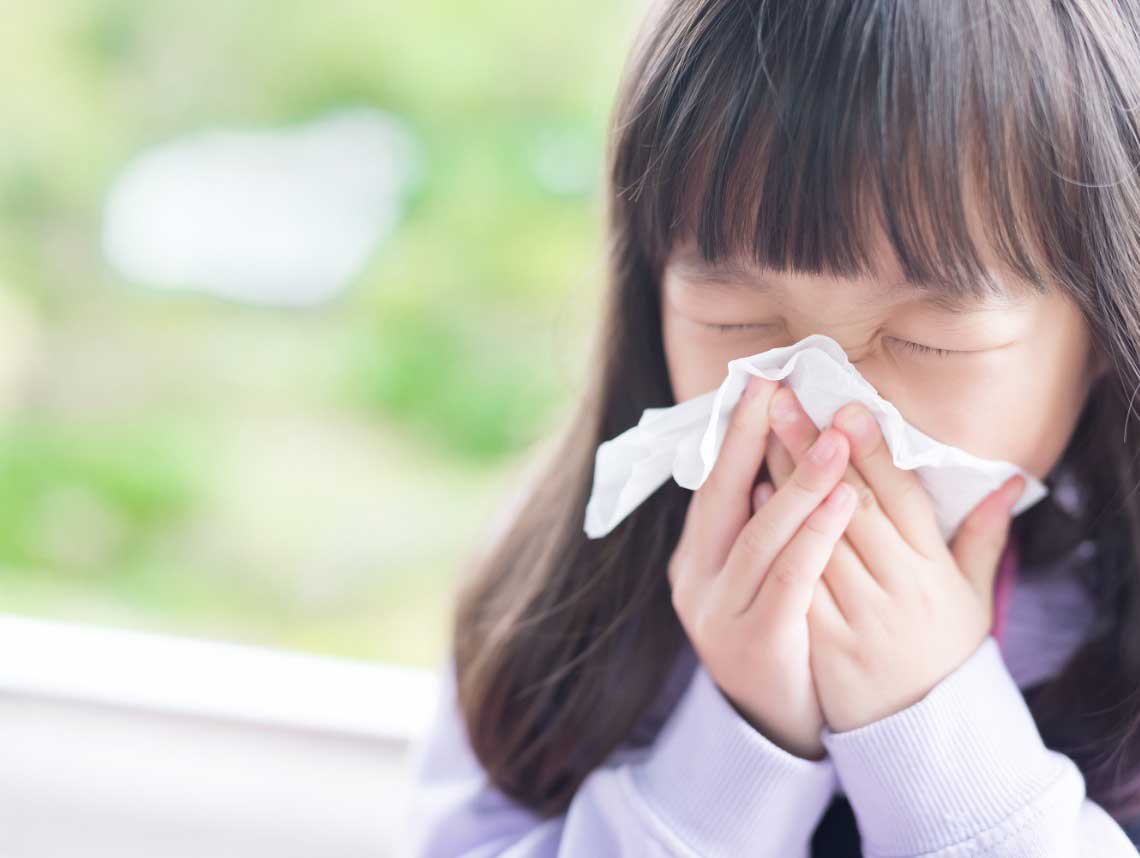It’s common knowledge that children get sick. Whether it’s a cold, an ear infection, or a tummy ache, going through these experiences is part and parcel of childhood — and parenting. But, that doesn’t change the fact that any time your little one feels under the weather, you want to do everything under the sun to return them to health as soon as possible. One of the most frequent ailments that can put a damper on their daily lives is sinusitis. What causes it? What are the symptoms? And what is the best form of treatment for your child?
What is sinusitis?
Behind everyone’s face, there’s a connected system of hollow spaces called sinuses. Their main function is to produce mucus to protect the body from pollutants. The sinuses that are located right behind the nasal cavity (where the nose is located), are called nasal sinuses. When the nasal sinuses become inflamed, the condition is called sinusitis.
When a person has sinusitis, the inflammation interferes with the way the mucus inside the nasal sinuses is drained. As a result, your child experiences a stuffy nose and related symptoms.
Sinusitis can be acute or can range from mild to severe. When a child is experiencing acute sinusitis, it’s often as a result of having just had a common cold. If the sinusitis is chronic, symptoms could last for several weeks. In most cases, they go away on their own. However, if your child’s symptoms are not getting any better as days go by, you should consult with their pediatrician.
Causes of Sinusitis in Children
Sinusitis can be caused by several factors — including allergies, autoimmune reactions, viruses, fungi, nasal polyps, or bacteria. That said, sinusitis is also more likely to occur if any of the following circumstances apply to your child:
- A recent nose injury
- Inserting a foreign body into the nose
- Tooth infection
- Cleft palate
- An abnormally shaped nose (deviated nasal septum)
- Nasal polyps
- Respiratory tract infections
- Allergies such as hay fever
Symptoms of Sinusitis in Children
In addition to having a stuffy nose, children with sinusitis also experience a wide range of other symptoms. The most common ones include:
- Nasal obstruction or congestion causing difficulty breathing through the nose
- Pain, tenderness and swelling around the eyes, cheeks, nose or foreheadLoss of smell
- Reduced sense of taste
- Thicker than usual mucus
- Fatigue
- Nasal inflammation
- Drainage down the back of the throat
In some cases, symptoms can spread to other parts of the body. When this occurs, your child may experience:
- Sore throat
- Ear pain
- Throat clearing
- Aches around the jaw
- Bad breath
When to See a Doctor for Sinusitis in Children
Sinusitis goes away on its own in most children. However, always seek medical attention if your child is also experiencing fever, stiff neck, double vision, confusion, and/or severe headaches, as these are signs of a serious infection.
Even if your child is not experiencing symptoms of infection, call their pediatrician if regular symptoms have lasted more than 10 days. Also, it’s good to schedule a follow-up visit if you’ve already seen the doctor, but the condition is not getting better despite following the recommended treatment.
Diagnosis and Treatment for Sinusitis in Children
When you take your child to the pediatrician, they will ask questions about your child’s symptoms, as well as their medical history. The doctor will then conduct a physical examination and may recommend X-rays or a CT scan of your child’s sinuses. In some cases, the pediatrician may insert a cotton swab in the child’s nose to take a sample of nasal discharge. This will then be inspected for specific types of bacteria.
Once sinusitis has been diagnosed, the pediatrician may prescribe antibiotics, nasal sprays, or allergy medications. If the condition is chronic, they may refer your child to an ear, nose, and throat specialist (ENT).
The pediatrician will also provide you with at-home care instructions, such as keeping your child hydrated. This helps thin out the thickened mucus in the nasal sinuses. If your child is experiencing facial pain, you can also apply a warm compress on their nose and eyes.
Contact Sonas for Home Health Care in Florida
It can be hard to balance your time between work, home, and caring for a child. That’s why our team of skilled professionals at Sonas Home Health Care is here to help.
Our home health care services offer support in the comfort of your home. We refer loving and competent nurses to provide customized care for families — from a few hours a day to around-the-clock supervision. Contact us directly to speak with a home health care professional or request a free in-home assessment. Together we can determine the best plan of action to keep your loved ones happy and healthy.
If you or a loved one are considering Pediatric Home Health Care Services in Florida, contact the caring staff at Sonas Home Health Care. Call today at (888) 592-5855.
This blog was reviewed by Jillian Miller BSN, RN — Director of Nursing for Sonas Home Health Care’s Tampa Bay market — for clinical accuracy. Jillian Miller has been a nurse for 16 years — working primarily in pediatrics. She believes the best part of working with the pediatric population is when you see smiles from clients when you first enter the room. She loves seeing the difference you can make in families’ lives while providing the best care possible for them.

